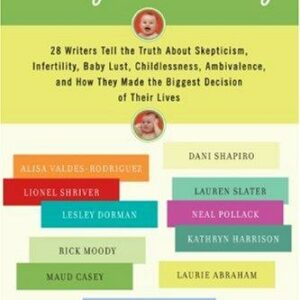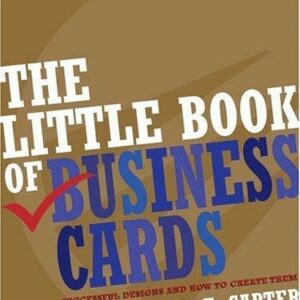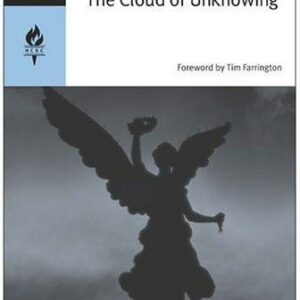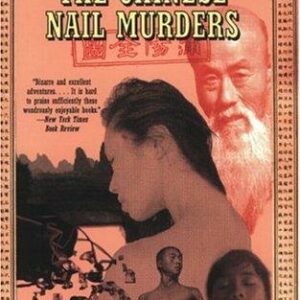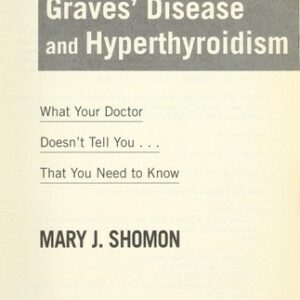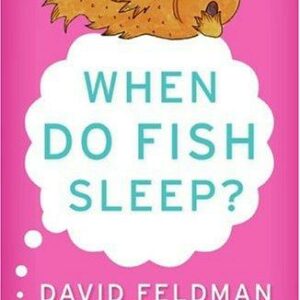Disgrace
$21.99
| Title | Range | Discount |
|---|---|---|
| Trade Discount | 5 + | 25% |
- Description
- Additional information
Description
**A BBC RADIO 4 GOOD READ**
‘A great novel by one of the finest authors writing in the English language today’ The Times
After years teaching Romantic poetry at the Technical University of Cape Town, David Lurie, middle-aged and twice divorced, has an impulsive affair with a student.
The affair sours; he is denounced and summoned before a committee of inquiry. Willing to admit his guilt, but refusing to yield to pressure to repent publicly, he resigns and retreats to his daughter Lucy’s isolated smallholding.
For a time, his daughter’s influence and the natural rhythms of the farm promise to harmonise his discordant life. But the balance of power in the country is shifting. He and Lucy become victims of a savage and disturbing attack which brings into relief all the faultlines in their relationship.
**A BBC BETWEEN THE COVERS BIG JUBILEE READ PICK**
**One of the BBC’s 100 Novels That Shaped Our World**What is remarkable about Coetzee’s vision as a novelist is that it remains intensely human, rooted in common experience and replete with failure, doubt and frustration—Guardian
Exhilarating… One of the best novelists alive—Sunday TimesJ.M. Coetzee’s work includes Waiting for the Barbarians, Life & Times of Michael K, Boyhood, Youth, Disgrace, Summertime, The Childhood of Jesus and, most recently, The Schooldays of Jesus. He was the first author to win the Booker Prize twice and was awarded the Nobel Prize in Literature in 2003.Without the Thursday interludes the week is as featureless as a desert. There are days when he does not know what to do with himself.
He spends more time in the university library, reading all he can find on the wider Byron circle, adding to notes that already fill two fat files. He enjoys the late-afternoon quiet of the reading room, enjoys the walk home afterwards: the brisk winter air, the damp, gleaming streets.
He is returning home one Friday evening, taking the long route through the old college gardens, when he notices one of his students on the path ahead of him. Her name is Melanie Isaacs, from his Romantics course. Not the best student but not the worst either: clever enough, but unengaged.
She is dawdling; he soon catches up with her. ‘Hello,’ he says.
She smiles back, bobbing her head, her smile sly rather than shy. She is small and thin, with close-cropped black hair, wide, almost Chinese cheekbones, large, dark eyes. Her outfits are always striking. Today she wears a maroon miniskirt with a mustard-coloured sweater and black tights; the gold baubles on her belt match the gold balls of her earrings.
He is mildly smitten with her. It is no great matter: barely a term passes when he does not fall for one or other of his charges. Cape Town: a city prodigal of beauty, of beauties.
Does she know he has an eye on her? Probably. Women are sensitive to it, to the weight of the desiring gaze.
It has been raining; from the pathside runnels comes the soft rush of water.
‘My favourite season, my favourite time of day,’ he remarks. ‘Do you live around here?’
‘Across the line. I share a flat.’
‘Is Cape Town your home?’
‘No, I grew up in George.’
‘I live just nearby. Can I invite you in for a drink?’
A pause, cautious. ‘OK. But I have to be back by seven-thirty.’
From the gardens they pass into the quiet residential pocket where he has lived for the past twelve years, first with Rosalind, then, after the divorce, alone.
He unlocks the security gate, unlocks the door, ushers the girl in. He switches on lights, takes her bag. There are raindrops on her hair. He stares, frankly ravished. She lowers her eyes, offering the same evasive and perhaps even coquettish little smile as before.
In the kitchen he opens a bottle of Meerlust and sets out biscuits and cheese. When he returns she is standing at the bookshelves, head on one side, reading titles. He puts on music: the Mozart clarinet quintet.
Wine, music: a ritual that men and women play out with each other. Nothing wrong with rituals, they were invented to ease the awkward passages. But the girl he has brought home is not just thirty years his junior: she is a student, his student, under his tutelage. No matter what passes between them now, they will have to meet again as teacher and pupil. Is he prepared for that?
‘Are you enjoying the course?’ he asks.
‘I liked Blake. I liked the Wonderhorn stuff.’
‘Wunderhorn.’
‘I’m not so crazy about Wordsworth.’
‘You shouldn’t be saying that to me. Wordsworth has been one of my masters.’
It is true. For as long as he can remember, the harmonies of The Prelude have echoed within him.
‘Maybe by the end of the course I’ll appreciate him more. Maybe he’ll grow on me.’
‘Maybe. But in my experience poetry speaks to you either at first sight or not at all. A flash of revelation and a flash of response. Like lightning. Like falling in love.’
Like falling in love. Do the young still fall in love, or is that mechanism obsolete by now, unnecessary, quaint, like steam locomotion? He is out of touch, out of date. Falling in love could have fallen out of fashion and come back again half a dozen times, for all he knows.
‘Do you write poetry yourself?’ he asks.
‘I did when I was at school. I wasn’t very good. I haven’t got the time now.’
‘And passions? Do you have any literary passions?’
She frowns at the strange word. ‘We did Adrienne Rich and Toni Morrison in my second year. And Alice Walker. I got pretty involved. But I wouldn’t call it a passion exactly.’
So: not a creature of passion. In the most roundabout of ways, is she warning him off?
‘I am going to throw together some supper,’ he says. ‘Will you join me? It will be very simple.’
She looks dubious.
‘Come on!’ he says. ‘Say yes!’
‘OK. But I have to make a phone call first.’
The call takes longer than he expected. From the kitchen he hears murmurings, silences.
‘What are your career plans?’ he asks afterwards.
‘Stagecraft and design. I’m doing a diploma in theatre.’
‘And what is your reason for taking a course in Romantic poetry?’
She ponders, wrinkling her nose. ‘It’s mainly for the atmosphere that I chose it,’ she says. ‘I didn’t want to take Shakespeare again. I took Shakespeare last year.’
What he throws together for supper is indeed simple: anchovies on tagliatelle with a mushroom sauce. He lets her chop the mushrooms. Otherwise she sits on a stool, watching while he cooks. They eat in the dining-room, opening a second bottle of wine. She eats without inhibition. A healthy appetite, for someone so slight.
‘Do you always cook for yourself?’ she asks.
‘I live alone. If I don’t cook, no one will.’
‘I hate cooking. I guess I should learn.’
‘Why? If you really hate it, marry a man who cooks.’
Together they contemplate the picture: the young wife with the daring clothes and gaudy jewellery striding through the front door, impatiently sniffing the air; the husband, colourless Mr Right, apronned, stirring a pot in the steaming kitchen. Reversals: the stuff of bourgeois comedy.
‘That’s all,’ he says at the end, when the bowl is empty. ‘No dessert, unless you want an apple or some yoghurt. Sorry D I didn’t know I would be having a guest.’
‘It was nice,’ she says, draining her glass, rising. ‘Thanks.’
‘Don’t go yet.’ He takes her by the hand and leads her to the sofa. ‘I have something to show you. Do you like dance? Not dancing: dance.’ He slips a cassette into the video machine. ‘It’s a film by a man named Norman McLaren. It’s quite old. I found it in the library. See what you think.’
Sitting side by side they watch. Two dancers on a bare stage move through their steps. Recorded by a stroboscopic camera, their images, ghosts of their movements, fan out behind them like wingbeats. It is a film he first saw a quarter of a century ago but is still captivated by: the instant of the present and the past of that instant, evanescent, caught in the same space.
He wills the girl to be captivated too. But he senses she is not.
When the film is over she gets up and wanders around the room. She raises the lid of the piano, strikes middle C. ‘Do you play?’ she says.
‘A bit.’
‘Classics or jazz?’
‘No jazz, I’m afraid.’
‘Will you play something for me?’
‘Not now. I’m out of practice. Another time, when we know each other better.’
She peers into his study. ‘Can I look?’ she says.
‘Switch on the light.’
He puts on more music: Scarlatti sonatas, cat-music.
‘You’ve got a lot of Byron books,’ she says when she comes out. ‘Is he your favourite?’
‘I’m working on Byron. On his time in Italy.’
‘Didn’t he die young?’
‘Thirty-six. They all died young. Or dried up. Or went mad and were locked away. But Italy wasn’t where Byron died. He died in Greece. He went to Italy to escape a scandal, and settled there. Settled down. Had the last big love-affair of his life. Italy was a popular destination for the English in those days. They believed the Italians were still in touch with their natures. Less hemmed in by convention, more passionate.’
She makes another circuit of the room. ‘Is this your wife?’ she asks, stopping before the framed photograph on the coffee-table.
‘My mother. Taken when she was young.’
‘Are you married?’
‘I was. Twice. But now I’m not.’ He does not say: Now I make do with what comes my way. He does not say: Now I make do with whores. ‘Can I offer you a liqueur?’
She does not want a liqueur, but does accept a shot of whisky in her coffee. As she sips, he leans over and touches her cheek. ‘You’re very lovely,’ he says. ‘I’m going to invite you to do something reckless.’ He touches her again. ‘Stay. Spend the night with me.’
Across the rim of the cup she regards him steadily. ‘Why?’
‘Because you ought to.’
‘Why ought I to?’
‘Why? Because a woman’s beauty does not belong to her alone. It is part of the bounty she brings into the world. She has a duty to share it.’
His hand still rests against her cheek. She does not withdraw, but does not yield either.
‘And what if I already share it?’ In her voice there is a hint of breathlessness. Exciting, always, to be courted: exciting, pleasurable.
‘Then you should share it more widely.’
Smooth words, as old as seduction itself. Yet at this moment he believes in them. She does not own herself. Beauty does not own itself.
‘From fairest creatures we desire increase,’ he says, ‘that thereby beauty’s rose might never die.’
Not a good move. Her smile loses its playful, mobile quality. The pentameter, whose cadence once served so well to oil the serpent’s words, now only estranges. He has become a teacher again, man of the book, guardian of the culture-hoard. She puts down her cup. ‘I must leave, I’m expected.’
The clouds have cleared, the stars are shining. ‘A lovely night,’ he says, unlocking the garden gate. She does not look up. ‘Shall I walk you home?’
‘No.’
‘Very well. Good night.’ He reaches out, enfolds her. For a moment he can feel her little breasts against him. Then she slips his embrace and is gone.GB
Additional information
| Weight | 13 oz |
|---|---|
| Dimensions | 5.0625 × 7.8125 in |
| Imprint | |
| Format | |
| ISBN-13 | |
| ISBN-10 | |
| Author | |
| Audience | |
| BISAC | |
| Subjects | autobiography, Literature, death, coming of age, realistic fiction, identity, roman, novels, race, short stories, love story, collection, Friendship, biographies, literary fiction, autobiographies, FIC051000, biographies of famous people, fiction books, books fiction, realistic fiction books, nobel prize winners in literature, FIC083030, biography, england, feminist, feminism, historical, war, crime, psychology, relationships, family, writing, mystery, modern, classic, comedy, society, school, romance, love, thriller, drama, fiction, 21st century |



